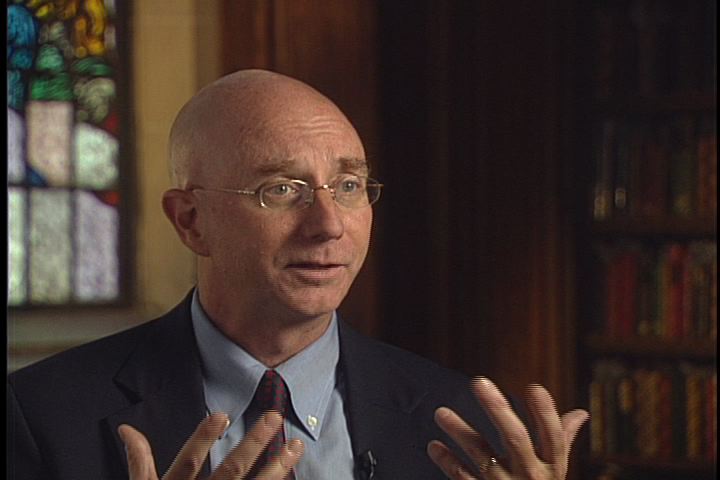In This Episode << SLIDE LEFT TO SEE ADDITIONAL SEGMENTS
Gustav Niebuhr on Interfaith Understanding
BOB ABERNETHY, anchor: The violence in Gaza may question whether people of different religions can ever learn to live together in peace. But especially since 9/11, many religious leaders and scholars have been trying to identify their differences and work together in spite of them. I spoke with the author of a new book that celebrates interfaith projects at the grassroots. The title is Beyond Tolerance, and it’s by former newspaperman turned Syracuse University professor Gustav Niebuhr, the great-nephew of theologian Reinhold Niebuhr. For him, promoting understanding between religions has become a calling.
On 9/11/01, Niebuhr was a religion reporter at The New York Times in midtown Manhattan. He was profoundly moved by the sight of the smoke from the World Trade Center rising over New York.

“That sense of curiosity can lead to the destruction of stereotypes, and it’s stereotypes that threaten us often in this world.” |
Professor GUSTAV NIEBUHR (Director, Religion and Society Program, Syracuse University and Author, Beyond Tolerance): It was the people inside who were incinerated. They were people from all different backgrounds, from all different faiths, and those of us who lived and worked in Manhattan, we didn’t just see it; I believe we experienced it. We physically internalized it. We breathed in the ashes from the Trade Center so that in a way those people are part of us.
ABERNETHY: Niebuhr applauds the theological conversations scholars are having, but he values at least as much the work of those he calls “everyday peacemakers” in churches, synagogues, and mosques whose curiosity about each other’s faith has led to conversation.
Prof. NIEBUHR: That sense of curiosity can lead to the destruction of stereotypes, and it’s stereotypes that threaten us often in this world. It’s belief that those people over there are out to get us. They’re no good — all of them are no good. Where does that lead us? That leads us into sort of fear and narrowness. That’s what we need to get away from. That’s not to say there aren’t dangerous people. There are, and they have to be dealt with. But we can’t allow our lives to be ruled by fear of others.
ABERNETHY: Niebuhr says local interfaith conversations can lead to joint projects and eventually to global peacemaking.
Prof. NIEBUHR: It is not about being nice, and it is not about being tolerant. I mean tolerant doesn’t really require very much. I think tolerance is a rather passive condition. But it is, in its own way, about going up against extremism.
ABERNETHY: Religious extremism, says Niebuhr, can produce catastrophic violence.
Prof. NIEBUHR: That’s why I think that people across religious boundaries, indeed across national boundaries, too, owe it to themselves to attempt to find the common humanity in each other, owe it to themselves to find ways of conversing and of working together, because the alternative can be so radically horrible.
ABERNETHY: Niebuhr cited the Catholic theologian Hans Kung.
Prof. NIEBUHR: I’ll paraphrase him. He said there’ll be no peace in the world without peace among religions, and no peace among religions without dialogue among religions.

